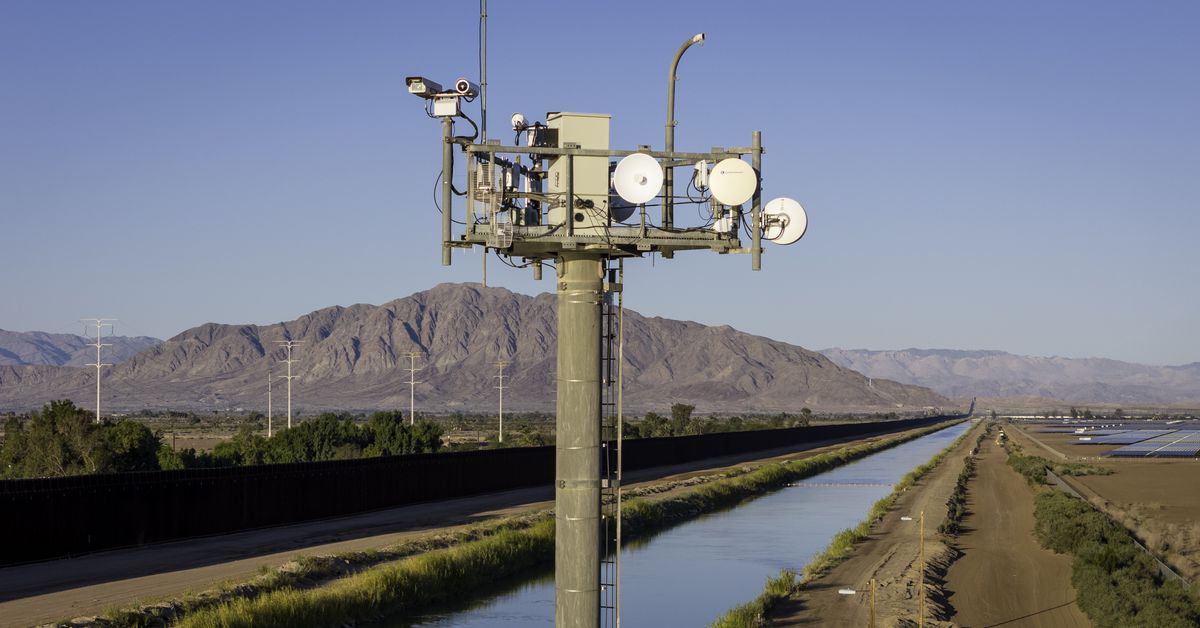
Customs and Border Safety (CBP) simply launched up to date information on migrant deaths on the US-Mexico border, and the outcomes are staggering. A minimum of 895 individuals died on the border through the 2022 fiscal 12 months — a 57 p.c improve from the earlier fiscal 12 months. This grim statistic makes 2022 the deadliest 12 months on report for migrants trying to return to the US, and it’s doable that the determine is an undercount.
For years, CBP has blamed the persistent rise in deaths on three elements: the summer season warmth, the ruggedness of the desert terrain, and the cruelty of smugglers who depart migrants to die there.
Local weather change has certainly made summers hotter and drier, which implies migrants who spend days or even weeks trekking by way of distant stretches of the desert usually tend to change into dehydrated and, if out within the solar for lengthy sufficient, to succumb to publicity. However rising temperatures don’t clarify why migrants are crossing by way of such perilous components of the borderlands within the first place, usually dying within the course of. The actual offender is the huge surveillance equipment that funnels migrants — together with individuals in search of asylum — into what CBP itself calls “hostile terrain.”
In November 2021, a month into the 2022 fiscal 12 months, CBP gave me a tour of its surveillance infrastructure within the Tucson Border Patrol sector, which encompasses greater than 90,000 sq. miles, and the place, over the following 11 months, a minimum of 142 migrants would lose their lives. I watched as CBP tracked a gaggle of 11 migrants with a Predator drone and bought a have a look at the distant digital camera feeds that brokers permit brokers to observe human motion by way of the desert from an air-conditioned workplace constructing. Later, whereas I walked round Organ Pipe Cactus Nationwide Monument with an area environmental activist, a Border Patrol agent drove as much as us and stated he had seen us on one of many cameras.
CBP’s community of surveillance towers, hidden cameras, aerial drones, and overhead sensors is the results of an enforcement technique referred to as “prevention by way of deterrence.”
The coverage, which was carried out within the mid-Nineties, was initially to construct up manpower in extremely trafficked areas of the border. On the time, most migrants entered the US by way of cities — they’d scale the fence that divided Tijuana and Ciudad Juaréz, for instance. In response, Border Patrol flooded cities alongside the border with brokers to dissuade migrants from crossing. Those that tried can be pushed onto “extra hostile terrain, much less fitted to crossing and extra fitted to enforcement,” Border Patrol’s 1994 strategic plan learn.
“A major correlation between the placement of border surveillance know-how, the routes taken by migrants, and the places of recovered human stays within the southern Arizona desert”
Thirty years later, the plan has borne out, although it hasn’t really diminished migration. As a substitute, because the 1994 plan predicted, it simply shifted the placement of crossings. Surveillance instruments permit Border Patrol to trace migrants by way of huge expanses of the border with out really having to be there — the company considers them a “pressure multiplier.” However the growth of CBP’s surveillance equipment has come at a big human value. A 2019 research by researchers on the College of Arizona discovered a “important correlation between the placement of border surveillance know-how, the routes taken by migrants, and the places of recovered human stays within the southern Arizona desert.”
Migrants don’t all the time know concerning the instruments CBP makes use of to trace them by way of the desert, however smugglers actually do — and they also encourage migrants to enter the US through distant, harmful routes the place they’re much less more likely to be intercepted by Border Patrol brokers however much more more likely to die.
Title 42, a pandemic-era coverage that allow CBP expel migrants again to Mexico and not using a listening to, might have additionally had a compounding impact that exacerbated the large 2022 demise toll. The coverage was ostensibly launched to restrict the unfold of covid-19 however was, for each the Trump and Biden administrations, a de facto anti-immigration deterrence technique.
Because of the Title 42 expulsions, some asylum seekers who would have in any other case turned themselves in to Border Patrol on the first doable alternative as a substitute tried to evade detection — typically as a result of that they had already been expelled to Mexico, the place they confronted important hazard. CBP’s Southwest Border enforcement report for the 2021 fiscal 12 months notes that the excessive variety of encounters that 12 months “was partly pushed by excessive recidivism charges amongst people processed beneath Title 42 public well being authorities.” In different phrases, some migrants who have been expelled beneath Title 42 tried to cross the border time and again till they have been profitable — or till the cruel desert terrain compelled them to surrender. In 2022, Border Patrol performed greater than 938,000 expulsions of single grownup migrants and 116,000 expulsions of household teams, in line with the company’s information.
Of the 895 fatalities listed for 2022, 131 have been listed as partial “skeletal stays,” which means that the demise may have occurred at any time. If we depart these out of the 2022 rely, that’s nonetheless 764 confirmed deaths throughout a 12-month interval, nearly all of which resulted from publicity or drowning.
The confluence of Title 42, report warmth, and the regular growth of CBP’s surveillance capabilities offered an ideal storm for migrant deaths in 2022. Title 42 was rescinded final 12 months, however the bipartisan border invoice that Congress spent months debating included a provision that may successfully shut down the border, Title 42-style, each time encounter numbers surpassed a sure threshold. Border surveillance, in the meantime, isn’t going away any time quickly. In truth, CBP’s subsequent aim is a “unified imaginative and prescient of unauthorized motion” throughout the US-Mexico border.
If the current previous is any indication, extra surveillance gained’t cut back migration. Its physique rely, nevertheless, will continue to grow.


